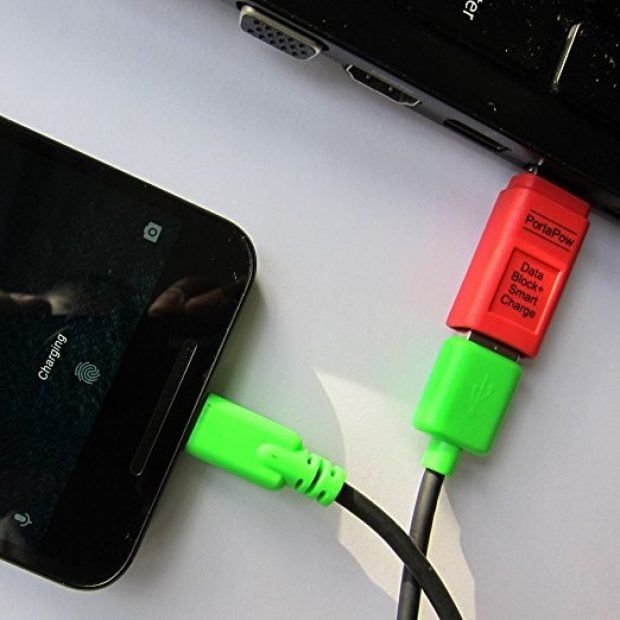Well, this is interesting. Quartz is reporting that a new type of condom has become popular after a tweet by tech lawyer Neil Brown:
USB condoms: for charging from an untrusted USB port (train, plane etc). Allows power but stops data / sync. pic.twitter.com/HsOEPl5V4d
— Neil Brown (@neil_neilzone) November 5, 2016
That’s right. These aren’t your grandfather’s Trojans. Instead of protecting against the spread of STDs, so-called “USB condoms” from PortaPow protect against the spread of your personal data. They allow your device to charge without telling the USB port any more about who you are or what’s on your phone or tablet. In the age of hacking and mass government surveillance, keeping your data in your own hands has become more important (and more difficult) than ever.

These data protectors cost under $13 and yet stand as the last line of defense against data leakage. Worth it. (Photo via Amazon)
PortaPlow Fast Charge + Data Block USB Adaptor with SmartCharge Chip (2 Pack) — $12.49
Over 13,000 people have either liked or retweeted Neil Brown’s tweet, which makes sense considering how necessary these little things are in today’s online ecosystem. I honestly can’t believe it took this long for someone to invent technology that serves this function. That said, I’m not sure I’m fully on-board with the moniker “USB condom.” I can’t really see myself saying, “Hi, Mom and Dad, I know you’re worried about your data, so I got you a pair of USB condoms.” Please let me know if you can think of something better.
Have a suggestion for a cool product or great deal that you think Daily Caller readers need to know about? Email the Daily Dealer at dealer@dailycaller.com.
Follow The Daily Dealer on Twitter and Facebook


